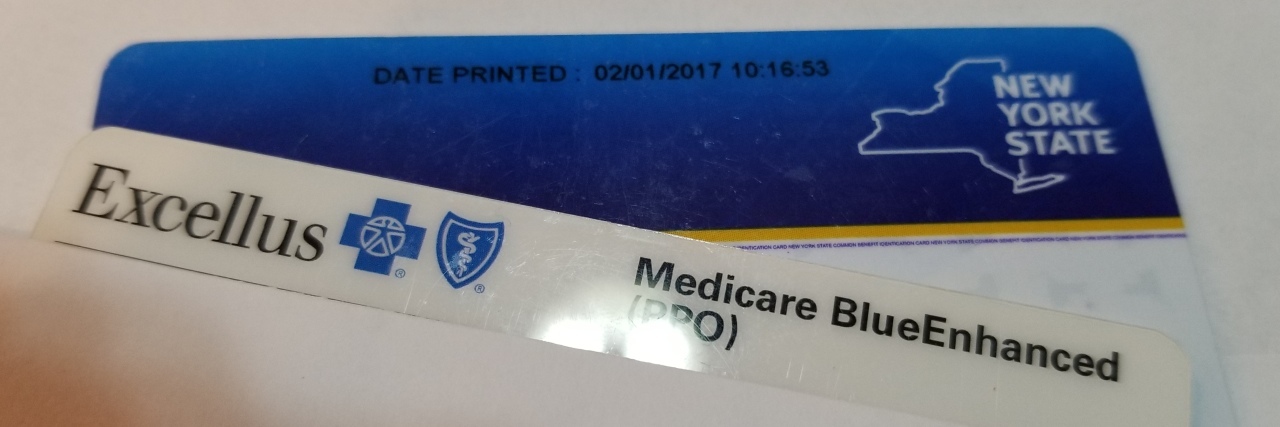When You Become One of 'Those People' on Government Assistance
There are so many misconceptions about disability, but the one that never seems to end is that somehow, when you or a family member is disabled, services and money are thrown your way. Many people seem to assume it’s easy to receive services such as Medicaid, SNAP (Supplemental Nutrition Assistance Program, formerly known and still called Food Stamps), or WIC (Women, Infants and Children food assistance program) etc. People throw the term “welfare” around as if recipients receive some type of huge check every month that working people fund. Even Social Security Disability is thought to be a way to be rich and relax for the rest of your life.
Nothing could be further from the truth.
When you have disabled children, many times a parent must quit work to help take care of them. The same can be said for a family member injured in an accident, or who develops a chronic illness, or any type of scenario. All of a sudden, you go from working and being a “productive” member of society to standing in line waiting to fill out forms to become one of “those people” on assistance.
Not only are you trying to deal with the reality of disability, but also paying your mortgage, affording gas to get to the doctor, or paying your heat bill in the dead of winter. Your income is reduced significantly, but your costs explode. You have to make choices like food vs. medications vs. doctor’s appointments.
You find yourself in a world that is unforgiving, with plenty of people making lots of comments about “those people,” while you have become a silent member of the club.
The first time you have to go to the social service office as a client can be a roller coaster. Your number finally gets called, because we are all just a number, after waiting three hours. Do you feel great approaching the window, met by a gruff worker, and noticing the sticker that says “You Again?” on it? He/she could care less about your story and just wants all your documentation. That you don’t have. Because you didn’t realize you would need every tiny bit of proof that you are, in fact, a citizen who lives at said address and blah blah blah. You realize you have to come back to this hellhole. Again.
But wait, there’s always some type of mix up with the paperwork. Today there is a nice lady, but you‘ll have to come back and resubmit again and maybe even again. Only to be denied food stamps because you make $50 too much.
The good news is that you qualify for WIC. You’re nervous to use the checks, because you are now the person taking forever in the line at the grocery store. You stand there in the name brand clothing you purchased while working, but can feel the stares and judgment behind you. You squirm, and promise yourself you’ll come in the middle of the night when the store is empty. Thank God for understanding cashiers who give you a pep talk while tears run down your face.
You tell yourself you’re feeding your kids and family, and these services are there for a reason.
You remind yourself that you are a good person, in a tough situation. But it’s hard.
Tell someone you’re on Medicaid. See the reaction. Feel what it’s like for them to not sit next to you at your kid’s game anymore.
It’s easy for our friends and family to say, “well, not you!” as they complain about welfare fraud. But they still want services cut. They still want participants to receive as little as possible. Except for you. You’re different. You had a job. You’re a good person, unlike everyone else on welfare.
Except you are everyone else on “welfare.” So are they. We are all one birth, death, or accident away from “welfare.”
When or if the government imposes more restrictions on social services, they don’t have an exception clause for people in the “not you” category. We are all treated the same.
So when or if you say “those people should…” think again. Do you want someone telling you your child can’t have a fresh apple, but needs to eat canned beans instead? Having someone dictate your grocery shopping is more humiliating than not being able to afford an independent standard of life — which is so devastating at times, people contemplate suicide.
If you are one of “those people,” congratulations. You’re doing the best you can to survive.
If you’re not on assistance, hopefully you’ll never have to find out what it’s like to be considered one of “those people,” because I guarantee your opinion will change.
We want to hear your story. Become a Mighty contributor here.
Getty image by Bowden Images.
If you or someone you know needs help, see our suicide prevention resources.

